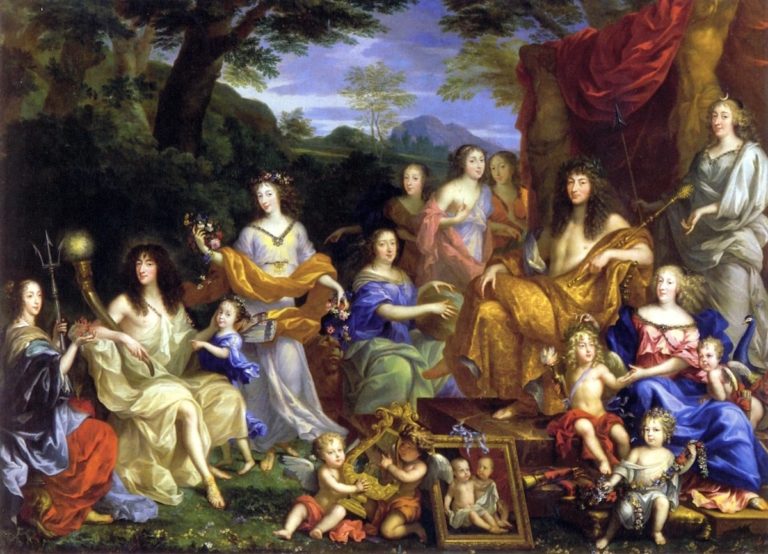A Diagnostic Question
Is man by nature good or evil? Some might try to give a nuanced answer, “Man is mostly good, with the occasional evil impulse.” Others might say, “Both. Man has good and evil fighting within him.” Still others might object to the question entirely, “Good and evil are social constructs, and therefore man can’t be either one of them by nature.” For this last group we might rephrase the question this way: Can man in good conscience indulge his impulses and desires, with the assumption that if they arise naturally then there can’t be anything wrong with them? Or should a man regard his natural impulses and passions with suspicion, as if they have been corrupted in some way and should more often be met with resistance than indulgence? This is what I mean when I ask, “Is man by nature good or evil?”
The answer to this question has immediate consequences for education. For example, if man is by nature good, then he will naturally incline toward good things and desire good things. The teacher should simply stay out of his way, offer guidance as necessary, and facilitate this good man’s exploration of the world around him and his pursuit of whatever seems good to him. Hindering this good man’s passions and impulses – saying, “Stop taking your pen apart and parse this Latin verb” – would be nothing short of oppressive.
But if man is by nature evil and corrupt, then the teacher is duty bound to exercise discipline in the classroom, instill virtues and show their good fruits, rebuke vices and reveal their harmful consequences, and curb the corrupt passions of the student. In this case the teacher should also dictate what the curriculum is going to be (since the student shouldn’t be creating a curriculum based on his whims), and point the student toward objective texts – good words and thoughts that come to the student from the outside, not the inside. Giving free reign to this corrupt man’s passions and impulses would be like standing idly by while a child walks ever closer to the edge of a cliff, listening apathetically to his terrified screams as he hurtles to his death, and then awarding him a diploma.
Overview
This article will have four parts, examining the way that three groups answer the question, “Is man by nature good or evil?” First we’ll examine the modern view of man; second, the Christian view of unregenerate man; third, the Christian view of regenerate man; and fourth, the classical view of man. Each answer suggests a particular approach to education; therefore, when we determine the nature of man, we will thereby also determine the sort of education that man ought to receive. At the same time we will recognize and reject any form of education that is contrary to man’s nature.
The Modern View of Man
So, is man by nature good or evil? What does the modern world have to say? The prevailing view in many fields, including the realm of modern education, is that man is the result of evolution, has no soul, and is neither good nor evil by nature.
There’s an important document from 1933 called the Humanist Manifesto I that summarizes the modern view of man in this way: “First: Religious humanists regard the universe as self-existing and not created. Second: Humanism believes that man is a part of nature and that he has emerged as a result of a continuous process. Third: Holding an organic view of life, humanists find that the traditional dualism of mind and body must be rejected.”
The Humanist Manifesto II, signed in 1973 by such people as author Isaac Asimov and behavioral psychologist B. F. Skinner, expanded on the point: “Modern science discredits such historic concepts as the ‘ghost in the machine’ and the ‘separable soul.’ Rather, science affirms that the human species is an emergence from natural evolutionary forces.”
The Humanist Manifesto III, signed in 2003 by Richard Dawkins, Antony Flew, two dozen Nobel Prize winners, and many others, puts it very succinctly and affirms the views expressed in the previous two Manifestos: “Humans are an integral part of nature, the result of unguided evolutionary change.”
This series of Humanist Manifestos is important for two reasons that relate to the topic at hand. First, the Humanist Manifestos summarize a widely-held modern worldview. And second, Humanist Manifesto I is of particular note because it was signed by none other than John Dewey, sometimes called The Father of Modern Education.
Through his work as an educational theorist, John Dewey reformed education in America. He aligned teaching methods to the tenets of humanism, thereby influencing all who passed through the public schools. And control of such things as schools was the stated goal of humanism: “Thirteenth: Religious humanism maintains that all associations and institutions exist for the fulfillment of human life. The intelligent evaluation, transformation, control, and direction of such associations and institutions with a view to the enhancement of human life is the purpose and program of humanism” (Humanist Manifesto I, emphasis added). Or in other words, humanism, under the guise of “the enhancement of human life,” turned schools into centers that act on and instill a secular humanist worldview.
Man: Amoral and Good?
Thus far we’ve seen the modern view of man, and how it found its way into the schools. But what of the initial question, “Is man by nature good or evil?” While the modern view doesn’t speak of man in terms of inherent morality, nevertheless there is great optimism about man and his capabilities. In the modern view there is no fall into sin or corruption of the way we were made, and therefore man is exactly the way he is “supposed” to be, with the caveat that there is no “Supposer,” and so any implication of divine purpose must be excluded. Man is also the most superior life form that we know of (having abandoned belief in a God or gods), and therefore man is man’s own greatest hope. So in short, even though the modern view rejects such labels as “naturally good” and “naturally evil,” it ends up treating man as if he were naturally good.
John Dewey makes this plain enough in My Pedagogic Creed (1897):
The child’s own instincts and powers furnish the material and give the starting point for all education. Save as the efforts of the educator connect with some activity which the child is carrying on of his own initiative independent of the educator, education becomes reduced to a pressure from without. (Article I)
In his later writing, Experience and Education (1938), Dewey contrasts traditional schools with the new progressive schools:
If one attempts to formulate the philosophy of education implicit in the practices of the new education, we may, I think, discover certain common principles amid the variety of progressive schools now existing. To imposition from above is opposed expression and cultivation of individuality; to external discipline is opposed free activity; to learning from texts and teachers, learning through experience; to acquisition of isolated skills and techniques by drill, is opposed acquisition of them as means of attaining ends which make direct vital appeal… (pg. 19)
In both of these writings Dewey extols “the child’s own instincts,” “his own initiative,” “free activity,” and acquisition of skills as they make “direct vital appeal” to the student. And now after several generations of this approach to education, what can we say about it? Have “the child’s own instincts” been as good as we thought? Has the student’s “own initiative” led to a love of learning that was absent in traditional schools? Or has the student’s own initiative initiated boredom and aversion to learning? Have children felt “direct vital appeal” for the things that they need in life? Or have they felt direct vital appeal for things that don’t matter at all – or worse, things that are harmful to themselves and others?
The Dark Reality of Man’s Nature
Anyone who has ever been a human being can likely guess the answers to these questions, especially those who have had contact with public schools. Our “own instincts” don’t often lead us to desire the good of others, or to love learning what is best for us to know, or to pursue virtue. Our own instincts often lead us to be lazy, selfish, mean, fascinated with gimmicks and bored with real substance. Our own instincts seek immediate pleasure in this present moment with little thought to the future or the consequences. Our own instincts abuse “free activity.” And as for the activities that make “direct vital appeal,” we would be ashamed of them if our own instincts knew how to blush.
In the opening section of The Silver Chair (book six in The Chronicles of Narnia), C. S. Lewis notes the real results of modern educational reform:
It was a dull autumn day and Jill Pole was crying behind the gym. She was crying because they had been bullying her. This is not going to be a school story, so I shall say as little as possible about Jill’s school, which is not a pleasant subject. It was ‘Co-educational,’ a school for both boys and girls, what used to be called a ‘mixed’ school; some said it was not nearly so mixed as the minds of the people who ran it. These people had the idea that boys and girls should be allowed to do what they liked. And unfortunately what ten or fifteen of the biggest boys and girls liked best was bullying the others. All sorts of things, horrid things, went on which at an ordinary school would have been found out and stopped in half a term; but at this school they weren’t. Or even if they were, the people who did them were not expelled or punished. The Head said they were interesting psychological cases and sent for them and talked to them for hours. And if you knew the right sort of things to say to the Head, the main result was that you became rather a favorite than otherwise. (Chapter 1, pgs. 1-2)
Good: What Man Isn’t
So is man by nature good or evil? The modern world rejects the validity of the question; and yet the modern world treats man as if he were by nature good. If the modern world would but open its eyes, and use the power of observation, and examine the empirical evidence that it claims to love so much, perhaps it would see the true nature of man. Perhaps it would see that we are far from good.
Continue reading: The Nature of the Student, Part II
Painting: Mythological Portrait of the Family of Louis XIV by Jean Nocret, 1670. The artist has depicted the family members as various gods in the Greek pantheon.
The Humanist Manifestos are from the website of the American Humanist Association, tagline,“Good without a God.” https://americanhumanist.org/
John Dewey’s “My Pedagogic Creed” is from “School Journal” vol. 54 (January 1897), pgs. 77-80


